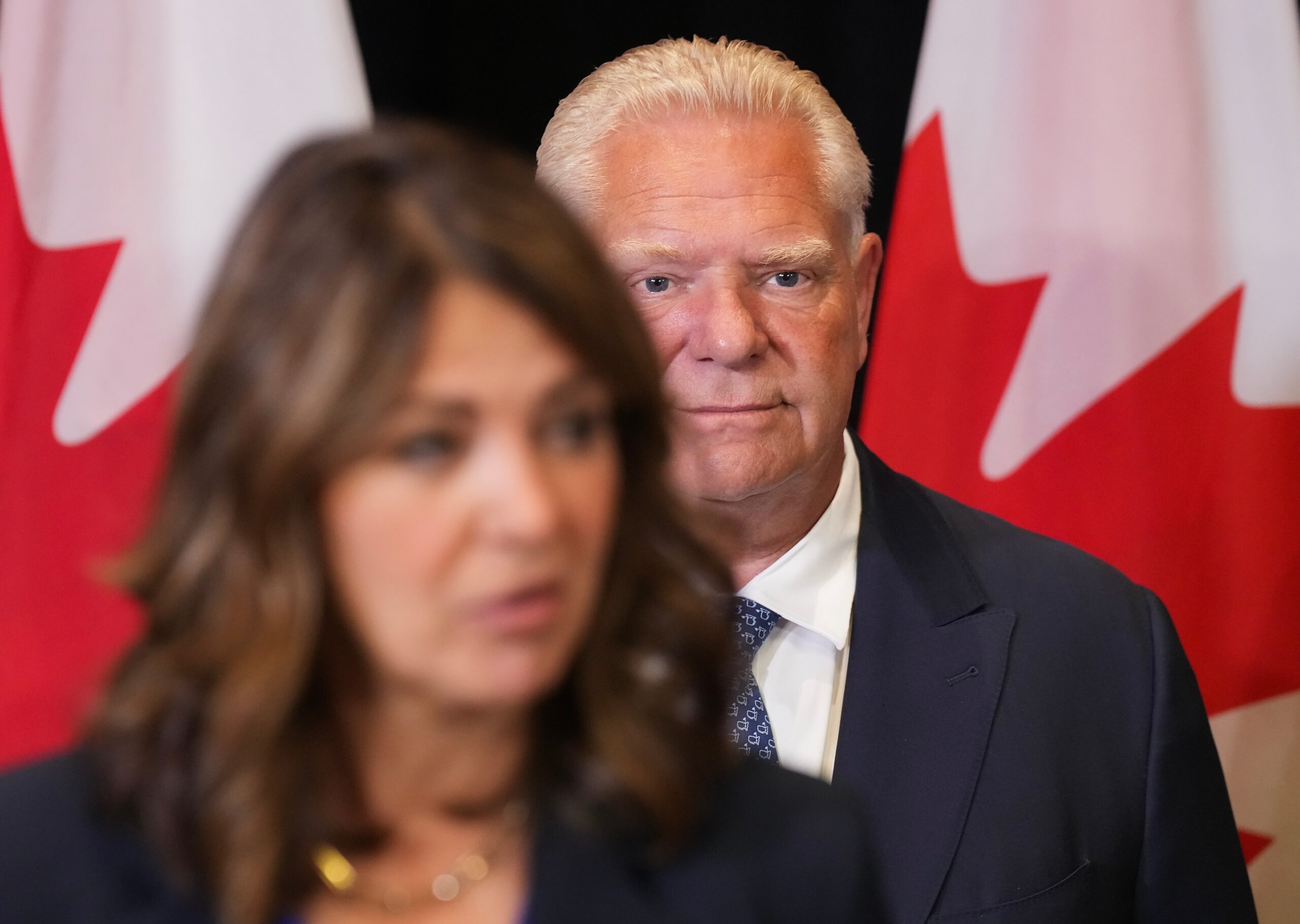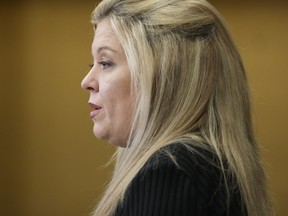Top Stories
Canada’s Premiers Clash with Ottawa Over Urgent Climate Policies

UPDATE: Tensions are escalating as Canada’s premiers push back against federal climate policies during the ongoing political discourse. A significant rift has emerged following the recent first ministers’ meeting in Huntsville, Ontario, where leaders like Doug Ford and Danielle Smith expressed strong opposition to the federal government’s climate initiatives.
During the meeting, premiers conveyed their desire for the immediate repeal of key environmental regulations, including the Impact Assessment Act and the Greenhouse Gas Pollution Pricing Act. The stakes are high, as these policies have profound implications for Canada’s approach to climate change and provincial autonomy.
In a striking letter addressed to Julie Dabrusin, the federal Environment Minister, Ford and Smith called for the cancellation of almost every significant climate policy introduced since 2015. This includes demands for amending the Species at Risk Act and repealing the Oil Tanker Moratorium Act. The premiers argue these regulations hinder economic growth, a claim that has sparked intense debate.
Rebecca Schulz, Alberta’s Environment Minister, voiced her support on social media, stating that “these policies undermine competitiveness and disproportionately harm provincial economies.” Her comments reflect a growing sentiment among several provincial leaders who are advocating for a more hands-off federal approach to climate governance.
However, this pushback comes amid a backdrop of political harmony between Ottawa and the provinces, particularly under the new leadership of Prime Minister Mark Carney. Ford praised Carney as “the most humble person you’d ever want to meet,” suggesting a willingness to cooperate, yet the tension over climate policy indicates that this relationship may not hold.
The federal government, under Carney, maintains a commitment to address climate change decisively. With the Supreme Court ruling affirming the federal government’s role in climate policy, the face-off between provincial leaders and Ottawa is poised to intensify.
Political analysts are closely monitoring how this conflict will unfold. As Carney emphasizes the need for a robust national strategy—including investments in infrastructure and military spending—the premiers’ desire for a more limited federal role is likely to clash with these ambitions.
In the coming weeks, anticipate heightened rhetoric as premiers like Pierre Poilievre and Scott Moe may seek to frame the federal government as an obstacle to provincial interests. This strategy echoes previous attempts to blame the federal government for local economic struggles, a narrative that has proven effective in the past.
The situation remains fluid, with the potential for significant ramifications for Canada’s environmental policy and intergovernmental relations. As provinces weigh their political calculations, the public will be watching closely to see how this confrontation impacts future climate initiatives and economic strategies.
Stay tuned for updates as this story develops, and consider the implications of these decisions on Canada’s environmental future.
-

 Politics4 weeks ago
Politics4 weeks agoSecwepemc First Nation Seeks Aboriginal Title Over Kamloops Area
-

 World5 months ago
World5 months agoScientists Unearth Ancient Antarctic Ice to Unlock Climate Secrets
-

 Entertainment5 months ago
Entertainment5 months agoTrump and McCormick to Announce $70 Billion Energy Investments
-

 Science5 months ago
Science5 months agoFour Astronauts Return to Earth After International Space Station Mission
-

 Lifestyle5 months ago
Lifestyle5 months agoTransLink Launches Food Truck Program to Boost Revenue in Vancouver
-

 Technology3 months ago
Technology3 months agoApple Notes Enhances Functionality with Markdown Support in macOS 26
-

 Lifestyle3 months ago
Lifestyle3 months agoManitoba’s Burger Champion Shines Again Amid Dining Innovations
-

 Top Stories2 months ago
Top Stories2 months agoUrgent Update: Fatal Crash on Highway 99 Claims Life of Pitt Meadows Man
-

 Politics4 months ago
Politics4 months agoUkrainian Tennis Star Elina Svitolina Faces Death Threats Online
-

 Sports5 months ago
Sports5 months agoSearch Underway for Missing Hunter Amid Hokkaido Bear Emergency
-

 Politics5 months ago
Politics5 months agoCarney Engages First Nations Leaders at Development Law Summit
-

 Technology5 months ago
Technology5 months agoFrosthaven Launches Early Access on July 31, 2025





















